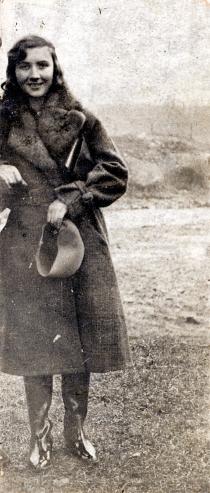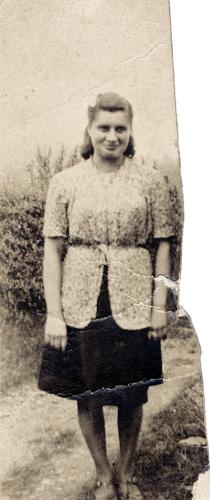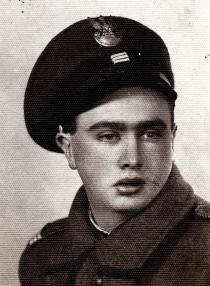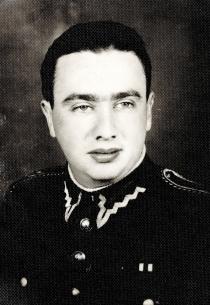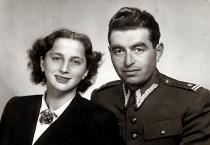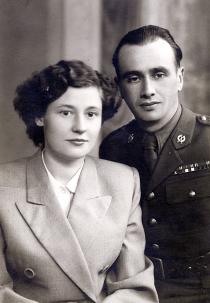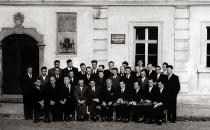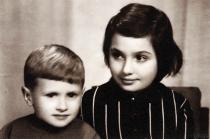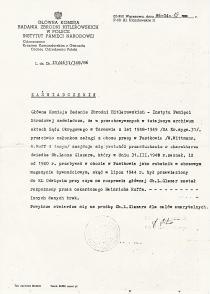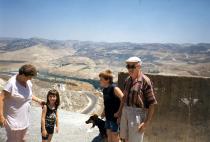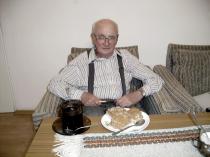This is a certificate I received from the Central Committee for the Investigation of Nazi Crimes in Poland in 1986. This document helped me to get my pension and compensation, and proved that I spent the war in camps. I asked for it myself.
In 1949 I got a letter from a friend from the camp in Pustkow, Chaskel Fischman, that the case of SS-man Ruff had come up; he'd been arrested in Tarnow and was going to be tried there. Why in Tarnow? Because they were tried in the area where they had operated. In the letter that friend asked me to go as a witness. Well, I said, absolutely. I'll go. I arrive in Tarnow, for the case - I was an officer by then - in uniform, naturally. The judge told me to swear my oath on a breviary. I say 'No, I'll just take my oath like that.' I wasn't a Catholic, and there wasn't a Jewish prayer book, so hard luck. I took my oath. Beforehand my friend had informed me that I should testify as badly as possible against him, because after all he'd been a mean SS-man and that was it.
I don't remember what his first name was. [Editor's note: Ruff's first name was Heinrich - according to a certificate issued to Mr. Glazer by the Central Committee for the Investigation of Nazi Crimes in Poland.] Our group wasn't very numerous, and he was the camp leader of our group. I saw him in the camp a lot. In July 1944 we were loaded in on a train without any air. Locked up like cattle. We didn't know anything of what was going on. We didn't know where we were going, even. It took a whole day and a night, I think. They open the wagons: 'Raus' [Ger.: Get out]. We look: 'Arbeit macht frei' [Work makes (you) free, the infamous inscription above the Auschwitz gate]. What's going to happen to us? I thought then. I didn't know anything about Auschwitz. I knew about our camp in Pustkow, but about others, that they existed at all, I didn't. They left us a very long time on that ramp. And that SS-man, Ruff, said that he had had a 'Befehl' [Ger.: command] and he had to put us in the camp, not in any crematorium. No, because he had been given an order and he wasn't leaving the place until they took us to the camp. It wasn't that he asked for it - he demanded it. On that ramp Ruff behaved very decently. I didn't see him during the convoy, I only saw him on the ramp.
That Ruff wasn't the worst, he was fairly alright, and so I didn't know what to say in court about him. The judge asked me if he had been cruel. I say, 'Yes.' I just said the worst thing I could have said. Well, what else? He got 15 years' imprisonment thanks to our testimonies. I don't know whether he did that much time, but presumably he was let out earlier.

